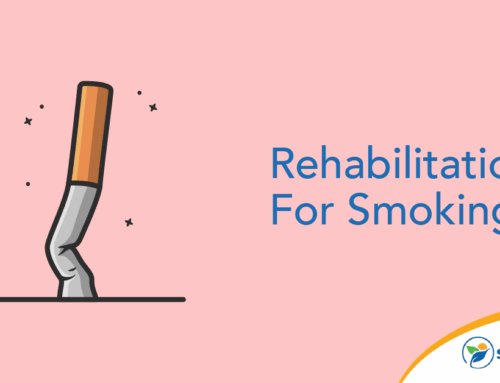Although 1 in 5 people experiences symptoms of a mental health disorder every year, only a fraction ever seek treatment. In fact, less than half of all adults with mental illness received treatment in 2021 alone. Mental health treatment worries are among some of the key reasons people don’t seek the help they need. Here are a few key fears therapy inspires in people that may make them hesitant to access care.
1. Fear of Stigma
When psychiatry first emerged as a medical specialty, approaches to treating mental illness often focused on separating those experiencing symptoms from the general population. Institutionalizing the mentally ill led to the misconception that people with mental health disorders were shameful at best and dangerous at worst.
In recent decades, public sentiment about mental illness has shifted considerably. As more people speak out about their mental health struggles, attitudes have begun to change. Still, memories of the social stigma that once came with a mental health diagnosis linger. As a result, worries about stigma remain high on the list of fears of therapy.
Individuals dealing with mental health disorders may worry about what people will think of them if they enter treatment. They may be afraid of being called crazy or insane or of people no longer trusting their judgment.
If you have stigma-related therapy anxiety, remember that people seek treatment for many reasons. Seeing a therapist is a healthy choice, a way to practice self-care and improve your life. You don’t need to face challenging situations and decisions alone, and people around you are likely to view your reaching out for help positively.
2. Fear of Endless Therapy
Some mental health treatment worries stem from the idea that therapy is permanent. All too often, people imagine themselves needing to see a therapist for the rest of their lives once they begin. In actuality, a therapist’s ultimate goal is to get you to a point where you no longer need their support as soon as possible. Around 50% of people recover from self-reported mental health symptoms within just 15 to 20 therapy sessions, and only a few individuals will need to remain in therapy for longer than 12 to 18 months.
3. Fear of Diagnosis
People who experience fears of therapy may know that they have a mental health disorder but feel anxiety about knowing the cause. They may worry about being diagnosed with a serious mental health condition or feel burdened by the idea of having a label permanently attached to them.
Although these fears are understandable, they reflect a distorted view of mental health. Not all conditions are permanent. With therapy and other interventions, many people will recover fully and not experience symptoms again. Also, not being able to put a name to what someone is experiencing won’t make it go away.
In reality, having a diagnosis can actually be helpful. Once you know why you’re having symptoms, you’ll be empowered to learn more about the condition and free to seek out others with the same disorder to build connections and get support.
4. Fear of Vulnerability
Pop culture has given many people a glimpse into what therapy is like. Nearly everyone has viewed a scene where a character talks to a therapist, delving deep into a traumatic event or uncovering a long-forgotten disturbing memory. For some, the idea of opening up to a stranger leads to a fear of vulnerability. They may worry about being uncomfortable during sessions or feel anxious about exploring painful subjects.
If the idea of sharing your thoughts and feelings and discussing your past with a therapist is distressing, know that your therapist is unlikely to dive into difficult topics immediately. Early sessions often focus on building rapport and getting to know each other. Your therapist will seek to gain your trust and only talk about what you’re ready to discuss.
The fact that your therapist is a stranger is beneficial. They can give you a fresh perspective on your life and provide an unbiased opinion.
5. Fear of Cost
Cost can be a real barrier to therapy. However, many people overestimate how much seeing a therapist costs and fear that getting help will put too much of a strain on their finances. They also may not realize that many health insurance plans include mental health coverage that will pay for all or some of the costs of seeing a therapist. If your insurance doesn’t or you don’t have insurance, you may be able to find therapists who offer reduced rates for the underinsured or uninsured.
6. Fear of Discrimination
Another anxiety that can keep people from seeking treatment is worry about discrimination. Like stigma-related fears of therapy, the fear of discrimination relates to how people have historically viewed mental health disorders. People who experience anxiety may fear that they’ll lose their jobs or housing, get passed up for promotions or find themselves unable to get a job due to being in therapy.
The truth is that people are unlikely to find out you’re in therapy unless you tell them. Privacy laws prevent therapists from sharing information about your mental health with anyone unless you give them permission to do so. In addition, federal and state laws exist that prohibit discrimination based on mental health.
Overcoming Therapy Fears
Mental health treatment worries don’t have to stop you from seeking help. The first step toward overcoming therapy fears is to acknowledge them. Try journaling about your fears or talking about them with a loved one you trust. Another great way to ease therapy anxiety is to reach out to therapists. Ask questions related to your fears of therapy so they can put your mind at ease.
Ease Fears of Therapy and Seek Help
If you’re experiencing symptoms of a mental health disorder, don’t let fear prevent you from seeking help. Our team here at Sunlight Recovery is ready to answer any questions you have and help you address your fears of therapy. Contact us today to explore treatment options and take the first step toward overcoming therapy fears and the effects of mental health issues.







